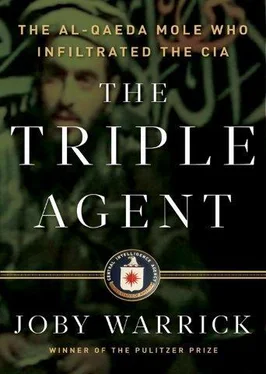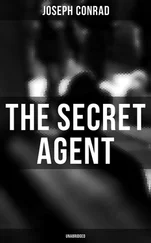During trips to Washington she rode the elevator to the CIA’s seventh-floor administrative wing to seek advice. The guidance was consistent: There were gaps in Matthews’s résumé that had to be filled before she could advance. Matthews was already an experienced manager who had led ably in London and Langley. But in two decades of counterterrorism work, she had never served in Kabul or Baghdad, front-line posts that were central to the CIA’s core mission. If Matthews really wanted to move up, she had to go to war.
But not all war zone jobs were the same, she discovered. A stint in Baghdad’s Green Zone would mean three years of hard work away from family. But within the constellation of CIA facilities were a few dismal outposts where conditions were so harsh or so dangerous that a one-year assignment was considered equivalent to three years anywhere else.
A base chief’s slot was due to open up in the early fall in just such a place, Matthews was told. It was in the wilds of eastern Afghanistan not far from Tora Bora, in what historically had been considered one of the roughest locales in that most violent of countries. It also was next door to a pair of Pakistani provinces that were the heartland of the Taliban and the location of the last confirmed sighting of Osama bin Laden.
Matthews knew the place. It was called Khost.
Other officers already were vying for the position, but Matthews quickly claimed the inside track. Several of the CIA’s most senior officers supported her for the job, telling Matthews that her one-year stint would be as beneficial to the agency as it would be to her own career.
Some of her closest friends and mentors were divided on whether she was suited for such a position. Some worried that it was too much, too soon. Matthews had no experience in dealing with the security demands of living and traveling in a war zone. She also had little background in the science of running covert agents, a separate tradition within the spy agency with its own highly specialized training and skills. Much of the Pakistani work at Khost involved working with networks of undercover operatives.
Then there was the personality factor. CIA peers who worked with Matthews regularly knew her to be passionate and direct, but also impatient and stubborn.
“She didn’t take questions well, and she had no patience for people who didn’t know as much about a subject as she did,” recalled a former covert officer who met with her regularly at Langley. “She had this way of sighing audibly, as if to say, ‘I know this; why don’t you?’ ”
Yet it was hard to argue that she lacked experience. Matthews had helped run operations against al-Qaeda from Washington and London for nearly fifteen years, and her role in the CIA’s takedown of Abu Zubaida had been roundly praised. Matthews’s team had led the agency’s two-year search for al-Qaeda’s former logistics man, tracking him at last to a safe house in the Pakistani city of Faisalabad, where he was surrounded and captured by dozens of Pakistani commandos and CIA paramilitary officers.
Moreover, Matthews’s superiors saw in her exactly the qualities the agency needed in its escalating war against al-Qaeda: leadership skills, mental toughness, enthusiasm, ambition, and an unquestioned mastery of the subject matter. One of her bosses had a pet name for her: STRAC. It was an old Navy acronym that stood for “Standing Tall, Ready Around the Clock.” The CIA had big plans for Matthews, it was clear, and the point of sending her to Afghanistan was to help her gain the experience she needed. With the agency stretched thin by years of deployments to Iraq and Afghanistan, it was getting harder to find willing volunteers whose job skills lined up perfectly with the opening. But in Matthews’s case, the candidate in question seemed to have the important ones, said a retired senior officer who weighed in on her professional appraisal.
“She was so smart and so careful,” the officer said. “The best people are simply the best people. An excellent case officer can also be an excellent analyst, and vice versa.”
Matthews, by all accounts, spent even less time worrying about her fitness for the job. Khost offered everything she was looking for: both a way to move up and a path to personal redemption. The mere fact that some were questioning her ability made her even more determined, friends said.
Matthews did finally seek the advice of one dissenter, a retired CIA officer whom she respected, someone who knew the bureaucracy well and was unfailingly blunt in his opinions. The two spent an afternoon together on his porch overlooking the Virginia foothills. Then they got on his computer to look at satellite images on Google Earth. In the photographs, the CIA base at Khost is clearly identifiable because it sits on an airfield with a packed-dirt runway, expanded by the Soviets in the 1980s to support bombing sorties against Afghan rebels dug in to the mountains. Just east of the base was the border crossing at Ghulam Khan, gateway to Pakistani strongholds controlled by notorious warlords and militants such as Jalaluddin Haqqani, Baitullah Mehsud, and perhaps bin Laden himself.
The retired officer attempted to distill his advice in a way that he hoped would penetrate Matthews’s reflexive defenses. For the CIA’s sake and for yours, he told her, Khost is the last place you should want to go.
“I understand the drive you’re feeling to go there,” the officer told her, according to his account of the conversation. “But you’re not thinking clearly. This is a paramilitary environment, and you have no experience with that.”
He ticked off a list of other concerns. Khost ran covert agents, something that Matthews knew little about. The drone strikes she helped orchestrate could kill innocent civilians and possibly expose her to legal jeopardy. Even her gender would work against her, he said, as Afghan tribesmen would be loath to negotiate as equals with a woman, particularly one wearing fatigue pants and a T-shirt.
Matthews’s eyes flashed at the suggestion that she as a woman would be at a disadvantage. The conversation became heated, and the more the two argued, the more adamant Matthews became.
“She already knew she was going to Afghanistan,” Matthews’s adviser later said. “I tried to talk her out of it, but she was hearing something else. She thought I was saying she couldn’t handle it.”
Unable to dissuade Matthews, the retired officer instead wished her good luck. It was the last time they would meet.
Amman, Jordan—January 19, 2009
The raiding party gathered in the street just before 11:00 P.M. and waited, as always, for the bedroom lights and TV sets to flicker out. Darkness would mean fewer witnesses, and a sleeping household would allow the agents of Jordan’s feared Mukhabarat intelligence service to work quickly, with a minimum of noise and fuss. There would be no knock at the door and no spoken commands. Just a crash of metal against wood and a single coordinated movement that would sweep the hapless suspect from his bedclothes to the back of a waiting car.
The target on this raw January night was a four-story house on Urwa Bin Al-Ward Street, a narrow alley in a Palestinian immigrant neighborhood of neatly scrubbed stone houses the color of beach sand. Just before midnight, two black sedans moved from their parking spot on cue and pulled into the alley with headlights off, while a third parked diagonally across the street to block traffic. Police and Mukhabarat agents in dark clothing dispersed to take positions around the front and rear of the house, and a small breach team gathered by the front door to await the signal. One of them, a stout intelligence captain wearing a black commando sweater, clutched a warrant with orders for the arrest of a young physician named Humam Khalil Abu Mulal al-Balawi. The man they were seeking was thirty-one years old and had never been accused of anything more serious than a traffic violation. Yet in forty-eight hours Balawi had emerged as one of the most dangerous men in all Jordan.
Читать дальше












